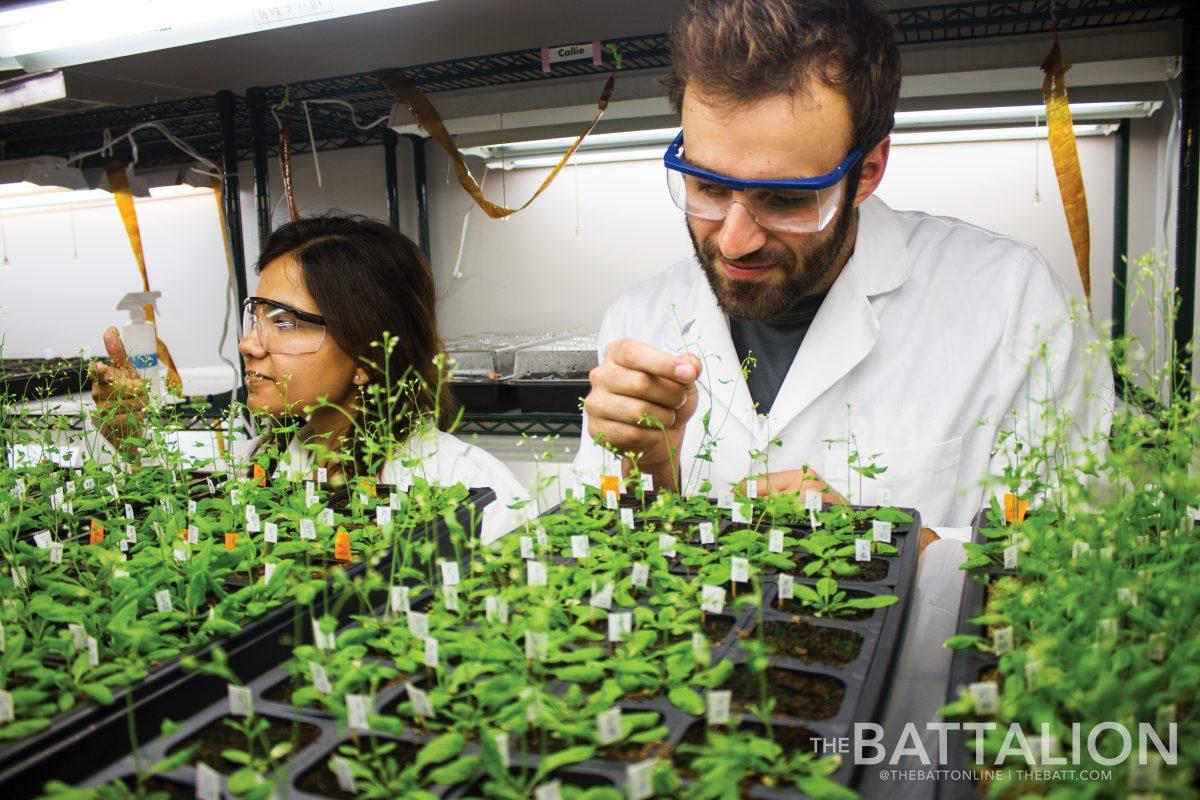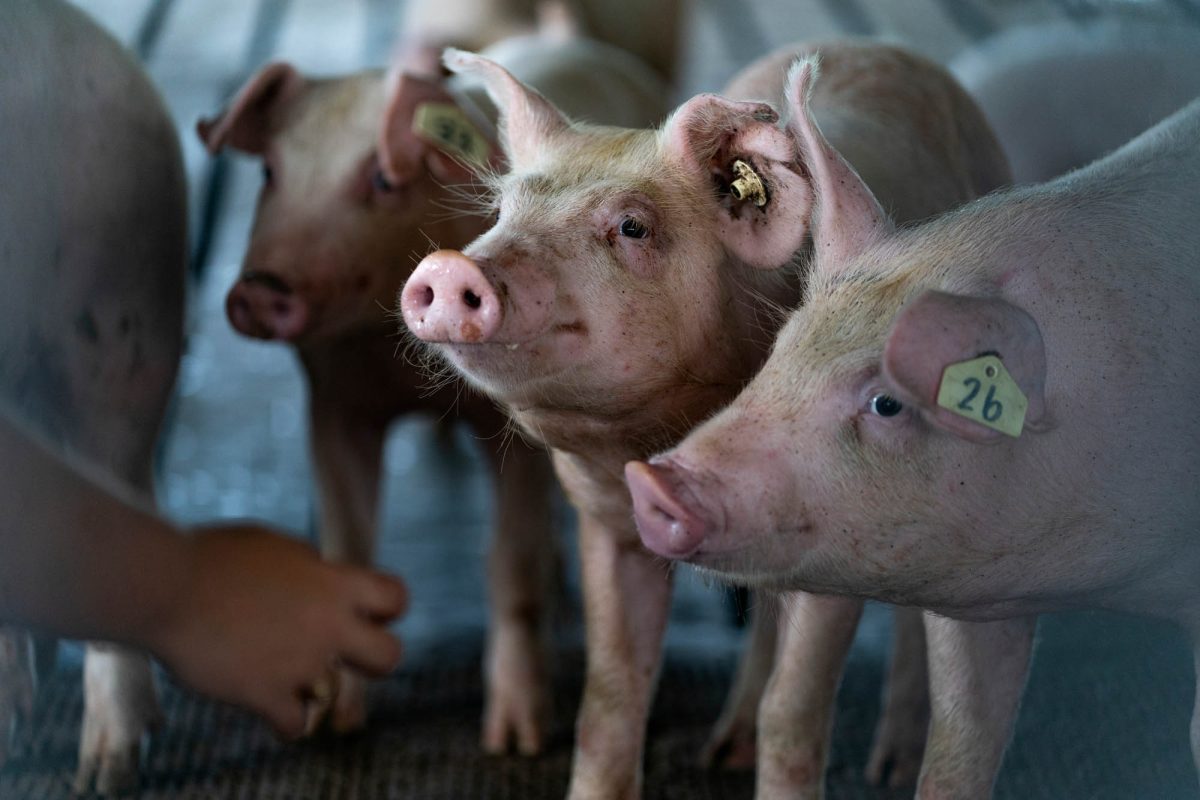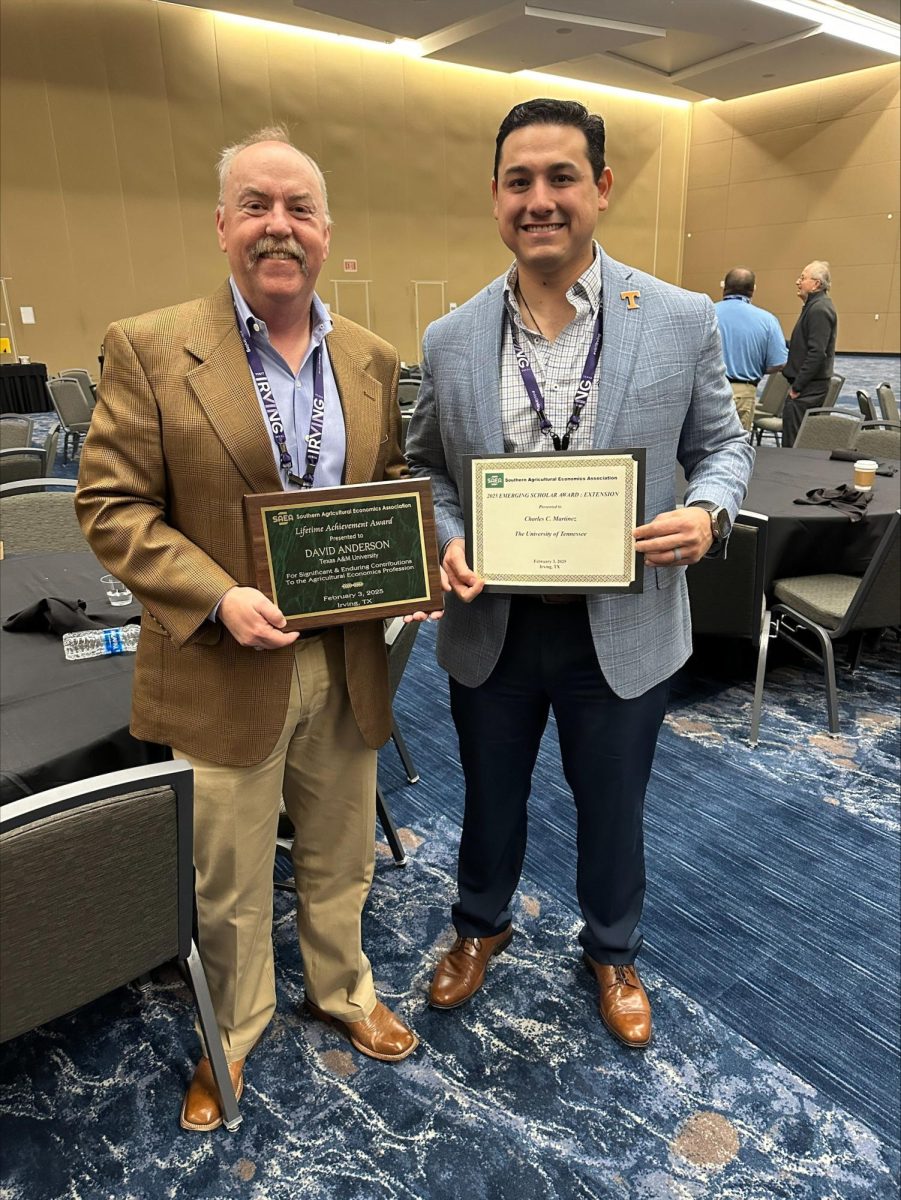Student Research Week, or SRW, is the largest student-run research event in the nation. This year, SRW was held from March 20-24 at the Memorial Student Center and highlighted various campus research initiatives. Students participating, either undergraduate or graduate students, can share their work and have professionals and community members learn about what they are passionate about and give feedback. Categories for the presentations were split between oral and poster presentations, allowing students to focus on improving their public speaking skills.
SRW is a key part of the Texas A&M academic nature and has been a valuable tool for research for the past 27 years. As a competitor, students can present their research as an individual or with a group and also have the opportunity to attend workshops to refine their presentations. Volunteers can register with a group, organization or individually. Volunteers and student organizations that go above and beyond can also be rewarded with prizes. Judges can be faculty, professionals, Aggies and graduate students.
Students who compete can receive up to $300 dollars for subject area winners and up to $1,000 for special awards. Students also network with professionals and faculty for new opportunities and insight into other ongoing research projects. As for professional development, this event is free for all students and allows them to hone their public speaking skills and resume building.
First and second place is awarded to undergraduate and graduate students in the categories below:
Agricultural and Life Sciences
Liberal Arts
Business and Political Science
Education and Human Development
Engineering
Earth Sciences
Medicine
Science
Veterinary Medicine
In business and political science, international studies junior Srikar Satish took first place in oral presentation. Satish based his research on algorithms to rank countries.
“My research looked to use [artificial intelligence and machine learning] algorithms to find an objective ranking of countries by power,” Satish said. “Right now, most rankings have some clear empirical issues and lack objectivity in their models. By developing a more objective metric to evaluate a power of a nation in international studies, it allows for a better policy analysis overall.”
Continuing in the oral presentation category, public health freshman Tia Pandey won in the science category. Pandey conducted her research on COVID-19 response rates in Texas prisons.
“My research was about the disproportionate COVID-19 rates within the Texas prisons and the research was conducted by the data from the TPCA [or Texas Prisons Community Advocate],” Pandey said. “Some resolution ideas proposed included comprehensive infection disease prevention mitigation plans, hiring an admin role in charge of overseeing the proposed strategy and a new built-in infrastructure to reinforce infectious disease strategies.”
In the poster presentation category, nutritional science junior Jennie Kim won second place in the agricultural and life sciences category. Kim has been working on her Undergraduate Research Scholars Thesis in the Chapkin Lab.
“My research focuses on the effects of short-chain fatty acids e.g., butyrate on colonic organoid stem cell homeostasis and gene expression in high versus normal glucose conditions,” Kim said. “I hope to continue my undergraduate research in the Chapkin Lab and provide important contributions to the expanding field of precision nutrition.”
In the education and human development category, health senior Kevin Recarte won first place with a poster presentation. Recarte conducted his research on the health disparities faced by minority populations within the healthcare system.
“The main question asked during the investigation was what can healthcare providers do to better mend the relationship between healthcare provider and patient, especially for those who have experienced some form of maltreatment or suffer from generational trauma under a healthcare provider,” Recarte said. “If I had the opportunity to expand this investigation to a national level, I would love for the discussion to open up and start mobilizing some form of solution to better help populations in disparity and improve our nation’s health.”
In the medicine category, biomedical sciences senior Meghan Si was awarded first place. Si’s research focused on colorectal cancer and its effect on both men and women in the U.S.
“It is the second leading cause of cancer-related deaths in both men and women in the U.S., and it is estimated that more than 50% of individuals with colorectal cancer will die from the disease in 2023,” Si said. “The gravity of the impacts of colorectal cancer have fueled the motivation for my research in determining the mechanism for a commonly overexpressed protein in colorectal cancer, ERBB2.”
Students were able to use their research throughout the school year and practice their public speaking at the largest student-run symposium in the nation.










